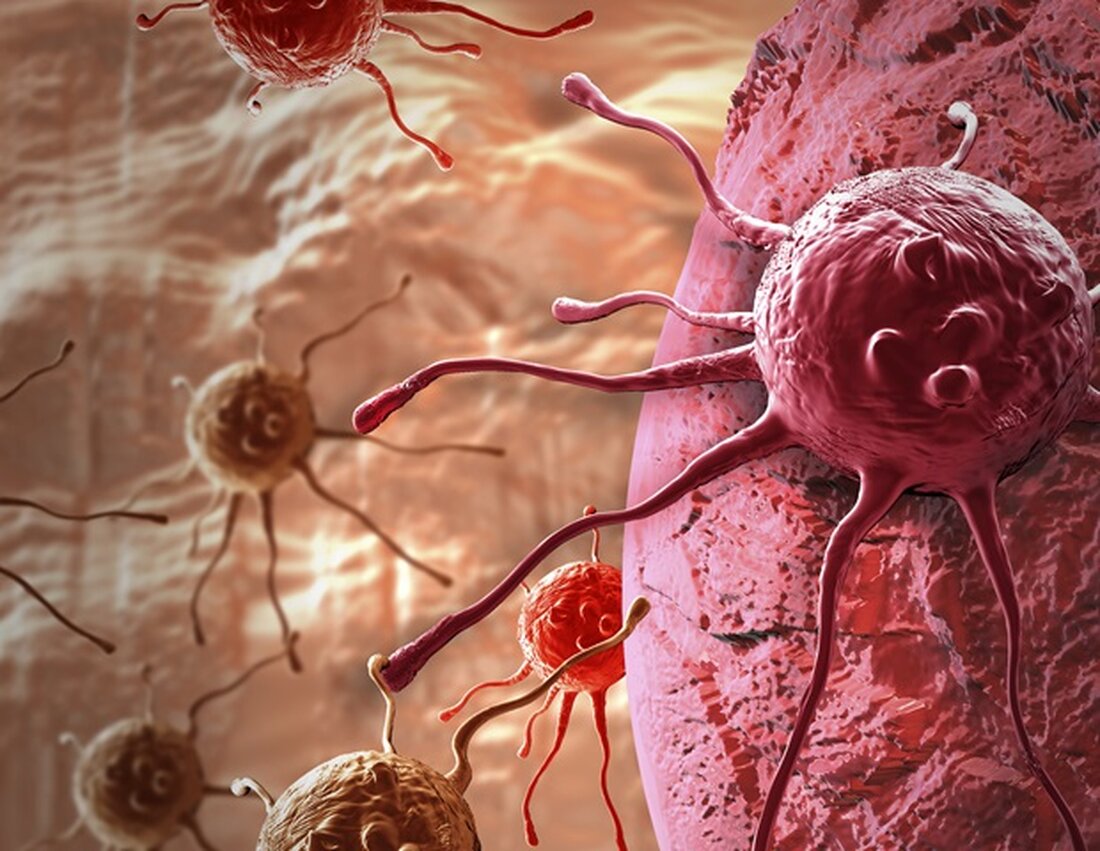Study sheds light on why some patients respond better to immunotherapy than others
Immunotherapy, a biotherapy that boosts the immune system's ability to recognize and attack mutated tumor cells, has changed the treatment landscape for patients battling cancer that arises from the progressive accumulation of DNA mutations. However, many patients do not respond to immunotherapy. For example, research into highly mutated colon and endometrial cancers has shown that only half respond to immunotherapy. A new study by researchers at Yale School of Medicine, published Oct. 27 in Cancer Discovery, a journal of the American Association for Cancer Research, has identified a possible explanation for why this happens. …

Study sheds light on why some patients respond better to immunotherapy than others
Immunotherapy, a biotherapy that boosts the immune system's ability to recognize and attack mutated tumor cells, has changed the treatment landscape for patients battling cancer that arises from the progressive accumulation of DNA mutations. However, many patients do not respond to immunotherapy. For example, research into highly mutated colon and endometrial cancers has shown that only half respond to immunotherapy.
A new study by researchers at Yale School of Medicine, published Oct. 27 in Cancer Discovery, a journal of the American Association for Cancer Research, has identified a possible explanation for why this happens. In an analysis of a phase 2 trial evaluating the immunotherapy drug pembrolizumab in 24 patients with endometrial cancer, the Yale team identified a specific mechanism of defective DNA repair in tumors as a key factor in determining patient outcomes.
We wanted to understand why some patients respond better to immunotherapy than others.”
Ryan Chow, co-author, MD/Ph.D. candidate, Yale’s Department of Genetics and the Systems Biology Institute
For the study, the Yale team focused on the failure of a process known as “mismatch repair.” When cells divide, errors often arise in their DNA. Through mismatch repair, a special group of proteins detects and corrects errors in the DNA. However, breakdown of this editing process occurs in many different types of cancer, resulting in high mutation rates.
The research team -; under the direction of Chow, Dr. Eric Song, an ophthalmologist and former M.D./Ph.D. student at Yale, and Dr. Alessandro Santin, Professor of Obstetrics, Gynecology and Reproductive Sciences -; focused on the fact that mismatch repair deficiency can result from two different mechanisms. In one, mutations occur in the DNA repair machinery itself, leading to the production of defective repair proteins; in the second, production of the DNA repair machinery is stopped completely. In both cases, the tumors accumulate a large number of mutations that would make them good candidates for immunotherapy.
“An analogy would be a dysfunctional toy factory,” Chow said. "Maybe the factory makes broken toys that don't work, or the factory has no staff and stops producing toys altogether. Either way, the kids won't be happy."
However, the researchers found that tumors with defective DNA repair proteins responded significantly better to immunotherapy than those in which the production of DNA repair proteins had been silenced. These differences could ultimately be attributed to changes in the immune response directed against each of the two tumor classes, they said.
“When it comes to immunotherapy, the route – in this case, the underlying cause of mismatch repair deficiency – appears to be just as important as the target,” Chow said.
Song added: “Innovative use of clinical trial data can guide our understanding of how immunotherapy manipulates the immune system and ultimately improve the way we treat patients.”
Santin is part of the Yale Cancer Center and Song is a resident at Smilow Cancer Hospital.
Source:
.

 Suche
Suche
 Mein Konto
Mein Konto
